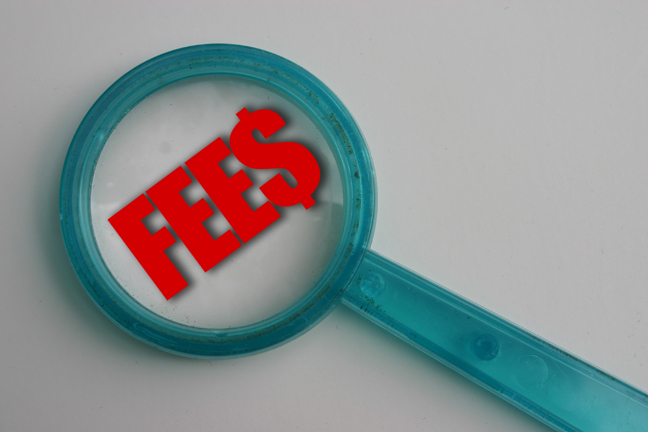A document which contains the final bipartisan rule called the Trade Regulation Rule on Unfair or Deceptive Fees was officially released earlier today, Tuesday, December 17, 2024 from the Federal Trade Commission of the United States — so does this final rule mean the end of mandatory resort fees at hotel and resort properties once and for all?
Trade Regulation Rule on Unfair or Deceptive Fees: The End of Mandatory Resort Fees?

The final rule prohibits a tactic by companies called bait-and-switch pricing — in which the actual cost of a product or service does not match what was initially advertised — as well as other methods that are used to hide total prices and bury what are known as junk fees through which the consumer must take the time and effort to hunt for fees that will be added on to the final folio. Short-term lodging industries and ticketing for live events are the targets of this final rule, as they are widely known to employ unfair and deceptive pricing practices at the literal expense of harming consumers and undercutting honest businesses.
“People deserve to know up-front what they’re being asked to pay—without worrying that they’ll later be saddled with mysterious fees that they haven’t budgeted for and can’t avoid,” Lina M. Khan — who is the chair of the Federal Trade Commission — was quoted as saying in this official press release. “The FTC’s rule will put an end to junk fees around live event tickets, hotels, and vacation rentals, saving Americans billions of dollars and millions of hours in wasted time. I urge enforcers to continue cracking down on these unlawful fees and encourage state and federal policymakers to build on this success with legislation that bans unfair and deceptive junk fees across the economy.”
According to estimates from the Federal Trade Commission, consumers will save as much as 53 million hours per year of wasted time spent searching for the total price for live-event tickets and short-term lodging — which is purportedly equivalent to greater than $11 billion over the next decade — as a result of the Trade Regulation Rule on Unfair or Deceptive Fees.
The final rule requires businesses to display the total price more prominently than most other pricing information — which means that the most prominent price in an advertisement needs to be the total price inclusive of all fees. Truthful itemization and breakdowns of costs and fees are permitted; but they should not overshadow what consumers want to know: the real total.
The Federal Trade Commission launched this rulemaking by requesting public input on whether a rule could help eliminate unfair and deceptive pricing tactics. After receiving greater than 12,000 comments on how hidden fees and misleading fees affected personal spending and competition, the Federal Trade Commission announced a proposed rule in October 2023 and invited a second round of comments. Greater than 60,000 additional comments were received which were considered in developing the final rule that was announced earlier today.
Final Boarding Call

So — are the days of hotel and resort properties charging unsuspecting consumers mandatory fees numbered?
Do not hold your breath. The only purpose of this final rule is to ensure and require that all mandatory fees are disclosed up front so that the advertised price matches the final price that the consumer is expected to pay. Marriott International, Incorporated is one of several companies that already comply with this final rule, as all a consumer needs to do is activate this functionality with a single click when researching room rates at hotel and resort properties.
In other words, the “surprise” of ultimately paying more for products and services will be removed — not the mandatory fees themselves.
As a result of an investigation in November of 2012, the Federal Trade Commission — which is a division of the federal government of the United States that is charged with protecting consumers throughout the country — warned 22 operators of hotel properties that their official reservations channels may violate the law by providing a deceptively low estimate of what consumers can expect to pay for their hotel rooms…
…but so-called “drip pricing” charges — which are sometimes portrayed as “convenience” fees or “service” fees — are anything but convenient; and the practice of deceiving customers as to the final cost of their products and services has only exponentially exploded in the past twelve years.
If the Federal Trade Commission could not do anything twelve years ago, how will it be taken seriously to protect the consumer today from deceptive pricing?
Moreover, the Federal Trade Commission will use its law enforcement authority to continue to rigorously pursue bait-and-switch pricing tactics — such as drip pricing and misleading fees — in other industries through enforcement on a case-by-case basis. The commercial airline industry is one that comes to mind…
…but this is a classic example of unnecessary intervention by the federal government that will accomplish very little on the landscape that is littered with mandatory junk fees — especially as listing those fees offers a number of advantages and incentives for the companies that charge them.
Even though the pressure keeps mounting on companies in the travel industry — especially lodging companies — to eliminate mandatory hidden “junk” fees which include but are not limited to…
- The Transparent Airfares Act of 2014
- The Hotel Advertising Transparency Act of 2019
- The Hotel Advertising Transparency Act of 2022
- The bipartisan Hotel Fees Transparency Act
- A law in California to prohibit hidden fees in 2024
- An effort by the president of the United States himself with the Junk Fee Prevention Act
…the federal government of the United States and other governments have done little in favor of the consumer over the years.
Mandatory “hidden junk” fees need to cease once and for all — preferably without inept government intervention — but at least they are now illegal in the state of California, which should at least be a small victory for the consumer.
Do your part to pressure companies to stop imposing ridiculous, useless, and unwanted mandatory fees and forcing you to pay them:
- Vote with your wallet or purse by minimizing your patronization of businesses which impose these mandatory fees
- Better yet, eliminate patronizing those companies altogether — if possible
- If you must patronize a lodging company that imposes mandatory fees, you can try negotiating the elimination of that mandatory fee from your folio or bill with a manager, which is usually more successful than you might think
- Try this one simple proven way to reclaim that resort fee which you paid
Photograph and graphic illustration ©2012 by Brian Cohen; and all other photographs ©2016 and ©2020 by Brian Cohen.

